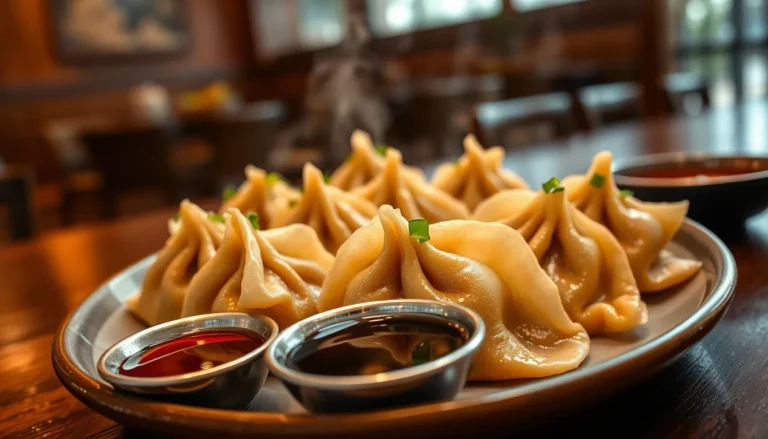In a world where sleep is for the weak and coffee is a lifeline, hustle culture memes have taken the internet by storm. These witty, often absurd images capture the relentless grind of modern life, poking fun at the obsession with productivity and the glorification of overwork. They remind us that while ambition is admirable, sometimes it’s okay to just chill on the couch in pajamas.
With a blend of humor and truth, these memes highlight the absurdity of hustling 24/7. They challenge the notion that success only comes from sacrificing personal time and well-being. As the hustle culture continues to dominate conversations, these memes serve as a lighthearted reminder that balance is key. So, buckle up for a ride through the world of hustle culture memes, where laughter meets the reality of our daily grind.
Table of Contents
ToggleUnderstanding Hustle Culture Meme
Hustle culture memes satirize the relentless drive for productivity and the glorification of overwork that permeates modern society. They creatively highlight the tension between ambition and personal well-being.
Definition of Hustle Culture
Hustle culture refers to the phenomenon where individuals pursue success relentlessly, often at the expense of leisure and self-care. This mindset promotes long hours of work and constant availability as a means to achieve goals. Critics note that it creates unrealistic expectations around productivity, fostering anxiety about personal and professional lives. Memes portraying hustle culture often emphasize the humorous yet critical perspective that a continuous grind isn’t sustainable or healthy. Ultimately, the concept celebrates hard work but questions whether sacrificing personal time for ambition leads to genuine happiness.
Origins of the Meme
The hustle culture meme emerged around the early 2010s as social media platforms like Instagram and Twitter grew in popularity. Individuals began creating humorous content that highlighted the absurdities of constantly hustling without rest. Influencers shared motivational quotes and images while often contrasting them with relatable experiences of burnout. This playful critique resonated widely, leading to viral posts that captured societal frustrations. Over time, these memes reflected a growing awareness that balance and mental health matter as much as ambition and success. They serve as a reminder that it’s okay to rest and enjoy life amidst societal pressures.
Impact of Hustle Culture Meme

Hustle culture memes significantly shape online conversations about productivity and well-being. They challenge traditional narratives around work, encouraging users to rethink their priorities.
Influence on Social Media
Social media platforms amplify hustle culture memes, allowing them to spread rapidly. Memes appear on sites like Instagram, Twitter, and TikTok, reaching millions of users daily. Individuals share these memes as a form of commentary on societal values. The humor often resonates with those feeling overwhelmed by work demands. Community engagement increases as users relate their experiences, fostering discussions on balance and self-care. Ultimately, the ubiquity of these memes forms a collective voice against the relentless pressure to succeed.
Effects on Mental Health
Hustle culture memes play a crucial role in addressing mental health concerns. They highlight the negative impacts of chronic overwork on well-being. Many individuals experience anxiety and burnout from unrealistic expectations around productivity. By showcasing the absurdity of non-stop work, these memes promote healthier lifestyle choices. Awareness of mental health issues grows as more people engage with the humorous critique. Acknowledging the value of rest becomes more prevalent, contributing to a cultural shift towards prioritizing well-being.
Criticism of Hustle Culture Meme
Critics of hustle culture memes argue that they often misrepresent work ethics. These memes might glorify a toxic mindset, promoting unhealthy competition and encouraging individuals to work excessively without proper rest. Constant messaging that equates worth with productivity can create unrealistic expectations. Employees may feel pressured to sacrifice personal time and well-being to conform to these ideals. Such narratives often overlook the value of collaboration and support in achieving career goals.
Misrepresentation of Work Ethics
Misrepresentation of work ethics leads to a distorted view of success. Many memes suggest that only those who work tirelessly deserve achievements. This portrayal ignores the diverse paths to success, emphasizing only the grind over sustainable effort. Individuals pursuing fulfillment in non-traditional ways often find themselves devalued. Workforce diversity and mental health advocates stress the importance of balance, highlighting that effective work doesn’t require constant hustle.
Gender and Racial Implications
Gender and racial implications are often overlooked in hustle culture discussions. Women and people of color may face additional barriers in the workplace, complicating their experiences with hustle culture. Memes frequently depict a singular, ambitious archetype that doesn’t represent these groups. When hustle culture promotes an image of relentless ambition, it can marginalize voices advocating for equity and fair representation. Recognizing the unique challenges faced by various demographics helps foster a more inclusive dialogue around work and success.
Alternatives to Hustle Culture
Hustle culture prompts individuals to reconsider their approach to work and life. Many find value in alternatives that emphasize balance and mental well-being.
Embracing Work-Life Balance
Work-life balance promotes a healthier lifestyle by encouraging individuals to dedicate time to personal interests and relationships. Setting clear boundaries between work and personal life helps prevent burnout. Time management strategies assist individuals in making space for hobbies and relaxation. Organizations that prioritize employee wellness often see increased productivity and job satisfaction. Flexible work arrangements accommodate diverse needs, enabling better focus on both professional and personal responsibilities.
Promoting Healthy Productivity
Healthy productivity focuses on quality over quantity, championing the idea that effective work leads to greater satisfaction. Individuals can enhance their performance by incorporating regular breaks into their schedules. Prioritizing tasks based on urgency and importance fosters a more manageable workload. Mindfulness practices, such as meditation or yoga, help individuals maintain mental clarity and reduce stress. Companies that encourage a healthy work environment tend to attract and retain talent more effectively.
Hustle culture memes play a significant role in shaping conversations about productivity and well-being. They highlight the absurdity of constant overwork while advocating for a more balanced lifestyle. By using humor to critique unrealistic expectations, these memes encourage individuals to prioritize self-care and mental health.
As the dialogue around work evolves, it’s crucial to recognize the diverse experiences and challenges faced by different demographics. Embracing a healthier approach to work means valuing quality over quantity and fostering environments that support well-being. Ultimately, the rise of hustle culture memes serves as a powerful reminder that success doesn’t have to come at the expense of personal happiness.





